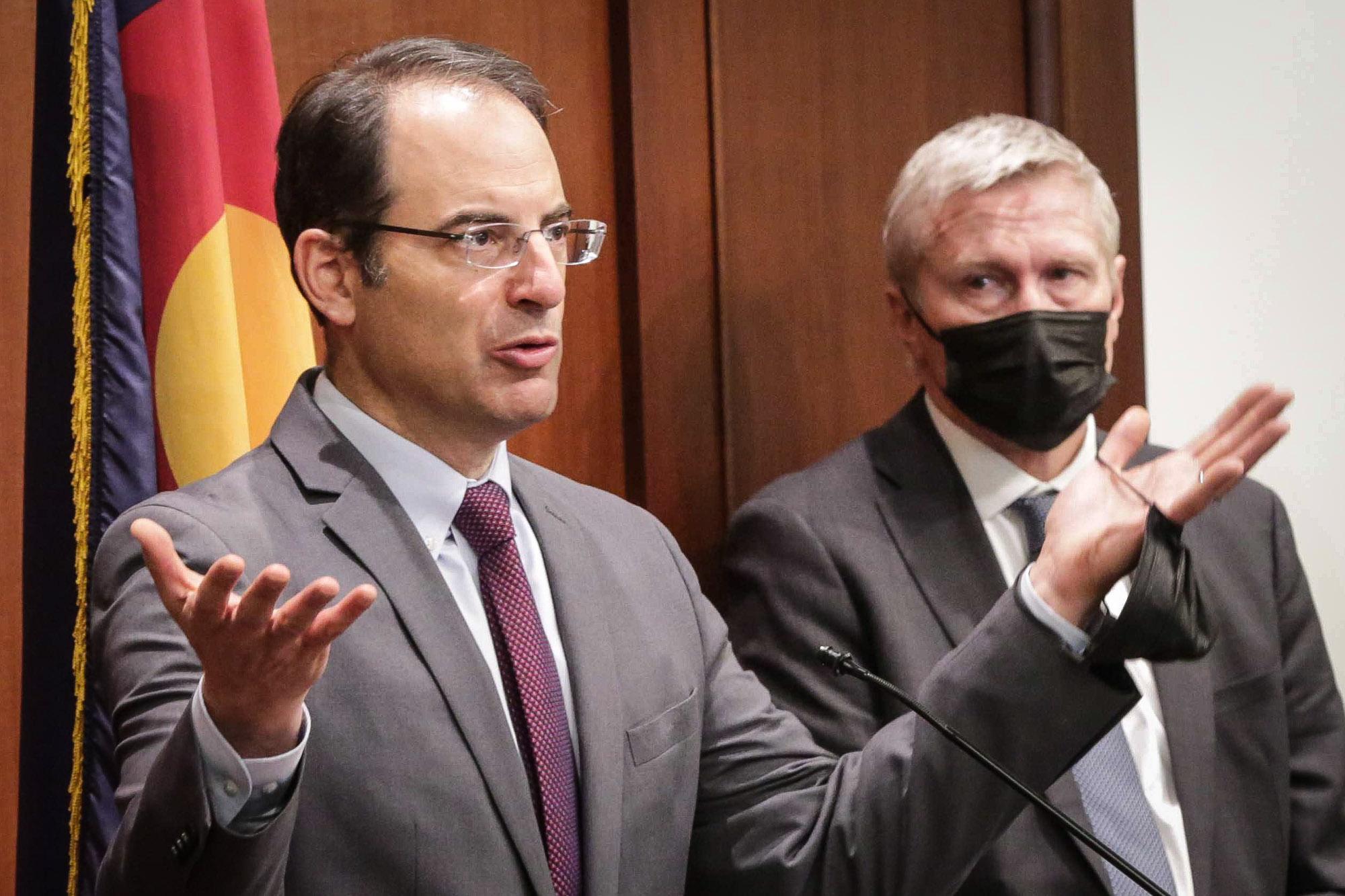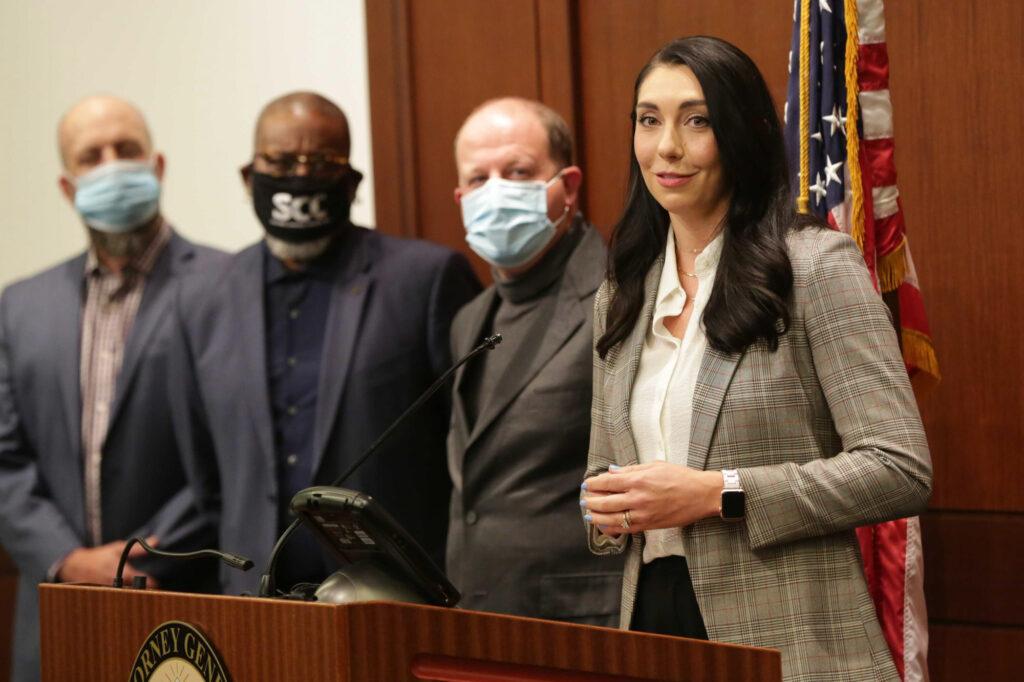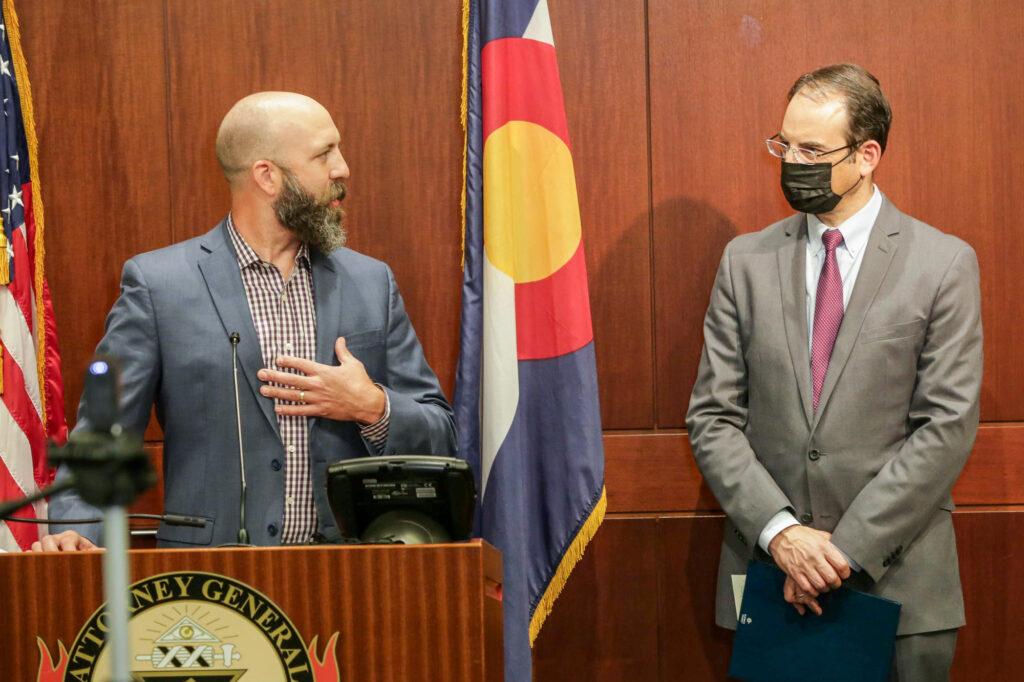
Former felons exiting prison could be candidates for job openings across Colorado right now — from restaurants to lumber yards — which could bring about the stability necessary to lessen the likelihood they commit another crime.
So hopes Attorney General Phil Weiser who announced more than $1 million in grants on Tuesday to the Colorado Department of Corrections and advocacy groups. The grants will grow the list of private employers willing to hire people leaving prison who need work.
The money will also go toward additional training programs for people preparing to leave prison, so they have some skills.
“The number one concern we hear from the business community is that it’s hard to find people to fill our open positions right now. So employers who think out of the box and can tap into a talented, dedicated pool of potential employees who need jobs, are ready for jobs, will benefit immensely,” said Gov. Jared Polis, at a press event announcing the new money. “Now is the right time. There is a real need right now for people to power our economic recovery.”
Weiser told a story about a man whose brother was released from prison in Colorado with a bus ticket and nothing more.
“That is not a way to help somebody to rebuild their lives,” Weiser said. “It’s not a way to protect public safety … It’s in fact giving somebody a stumbling block in front of the blind. We can do better.”

People face steep barriers when they transition out of prison.
More than 8,500 people leave Colorado prisons each year. Nearly half return to prison within three years for committing new crimes or violating their parole, according to the Department of Corrections.
Much of that high recidivism rate is attributed to people with a criminal background not gaining stable housing, not finding a good enough job to pay rent, and not having any family support.
People transitioning out of prison face steep barriers in the workforce and in finding housing: many don’t get calls back on jobs and many apartments screen for criminal history. More than 25 percent are unemployed.
The $1.1 million from the Department of Law will funnel through the Department of Corrections, and $900,000 of it will go to a network of community organizations that will compile lists of companies and organizations willing to hire people out of prison.
The remaining $200,000 will go to existing organizations that help people with mental health support, job skills and housing.
“Here’s the simple truth: Men and women who leave prison with a job … who have better social connections already established, who have a future ahead of them … are better neighbors to all of us, and they’re also less likely to return to prison,” said Department of Corrections executive director Dean Williams. “And it improves public safety.”

Some of that work to help former felons find stable housing and jobs is already underway.
Cory Miskell, the director of the Latino Coalition for Community Leadership, told another story of a man released from prison after 11 years into one of Colorado’s rural communities. He was struggling with a long-standing addiction and hadn’t spoken to his family in a long time.
The man was paired with a counselor through Work and Gain Education and Employment Skills or WAGES. The counselor helped him get into training for a commercial truck driving license and helped with rental assistance while he finished school. He was also connected with an addiction counselor.
The man now pays for his own housing through his truck-driving job and is back in touch with his family.
“Partnering with Colorado’s businesses will take this work to the next level,” Miskell said.
State Rep. Shannon Bird, a Democrat who represents Adams County, told reporters she was considering legislation in the next year that would evaluate which occupational licenses prohibit people with criminal records from applying and loosening up those regulations.
Hassan Latif has worked in this space at Aurora’s Second Chance Center since 2012. He said Colorado has come a long way in acknowledging that people released from prison need additional support — but this goes farther.
“There was literally no vision of or pathway towards cooperation with the state Department of Corrections,” he said. “Fair chance hiring is an opportunity to build on this project.”
Latif, who left prison almost 16 years ago, said that his struggle to find viable employment was the “rule, not the exception.”
“This can really move the needle,” he said.









